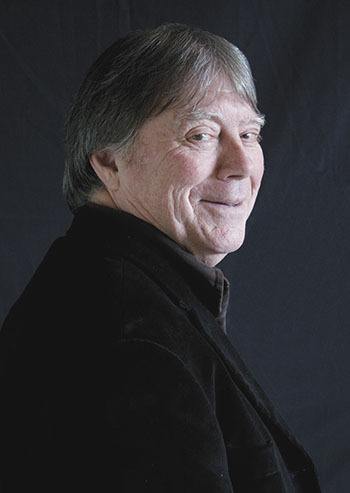Mythologist and author Michael Meade will put on The Genius of Youth, The Wisdom of Elders in a gathering at Vashon’s United Methodist Church on Friday evening.
For more than 25 years, Meade has worked with at-risk youth in diverse communities throughout the country and championed the idea that each young person has some genius and some gift to give to life. At Friday’s event, he will frame the tragic series of suicides and deaths on Vashon within the context of cultural dysfunction, collective anxiety and radical changes in the world. One aim of the presentation is to give people some ideas to work with, some experiences to learn from, while fostering a dialog about island issues that can lead to creative ways of working with Vashon’s recent tragedies.
Island writer Susan McCabe recently interviewed Meade on how these elements can work for Vashon today.
Susan McCabe: What do you mean when you reference genius?
Michael Meade: Experience alone does not produce wisdom. Wisdom means that one has extracted knowledge from the ups and downs of life. Last spring I was invited to speak at Stanford University on the topic of genius. That occasion gave me a way of reintroducing genius into American culture and education. Genius is not a reference to IQ. The idea is that every child has genius and that part of the job of culture is to cultivate the genius in each person — to help awaken the natural abilities and develop the unique spirit of each life.
Each young person has genius and something to give to their community. On the other hand, each “older” can become an elder. The elders are supposed to bring imagination into culture from one side, while the youth bring creativity and inspiration from the other side of adult life. That shapes culture.
McCabe: How do your presentations reflect culture to communities?
Meade: For almost 30 years I’ve been doing community building and healing work in at risk communities nationwide.
McCabe: What form does that take?
Meade: A lot of work is hands-on with severely at risk youth, also with battle veterans seeking a way back into society. The work has involved the healing of individuals recovering from trauma, but also the building of meaningful community based on working with the afflictions in the community. Peoples’ reaction to trauma and loss is often to push those who are afflicted to the margins. But genuine community brings them into the center and deepens the connection amongst everyone by helping those most afflicted.
McCabe: Is your work to take the afflictions of individuals, open them to the community and build a web of support?
Meade: You judge a community by the plight of its most afflicted members, not simply by the success of its high achievers. The word community contains commune and is really close to the word communion. A community has to renew itself through creative acts of communion, of bringing everybody together. What instinctively brings people together is tragedy and loss. It is during times of tragedy that people not only recognize the value of community, but also have the opportunity to recreate community. Those most touched by tragedy and loss need to be held by the community until they can hold themselves. One of the instinctive holding dynamics in human community is the creative tension that exists between youth and elders.
McCabe: So what can we expect on Friday?
Meade: My method is to tell stories and to use poetry and provocative/inspiring ideas to help us see tragedy and loss, as well as cultural confusion and the increase of isolation in new ways, but also to bring a knowledge of traditional practices and artful ways of fashioning what I call “sudden community.”
McCabe: Is that almost like an emergency response, one that could be applied to recent tragedies on Vashon?
Meade: The troubles, instabilities and pressures that are pervasive in the outside world also exist on Vashon because the outer world is constantly present here through technology and everything being instantly available online. Problems that may have seemed more part of the mainland in the past are here now.
McCabe: How does that relate to genius and wisdom?
Meade: I’m going to talk about the difference between elders and olders, because people want to know how to be wise elders. And, because of the instability of today’s world, it’s not enough for youth to have an academic education. There needs to be a psychological education about how to become oneself and live amidst so much change and instability. Youth and elders are at opposite ends of the road of adult life. Youth are intended to be the source of new ideas and inspirations. Elders are the source of both survival and wisdom. Although seemingly opposed, together they form a healing combination that can renew culture from both ends. That creative combination may be needed, especially for our Vashon youth and families who have experienced a year of tragedy and loss.



